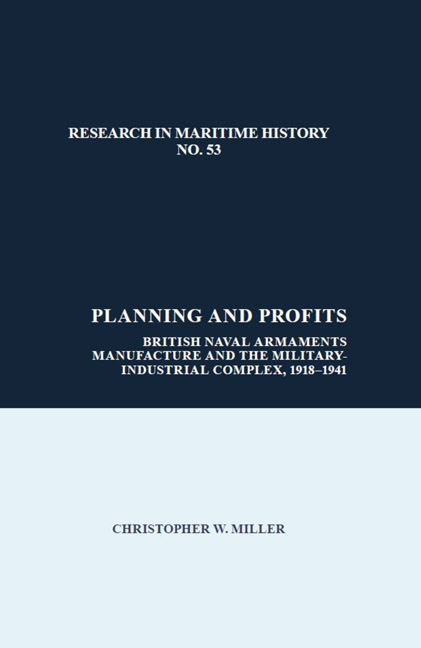 Planning and Profits
Planning and Profits from Part Three - The Formation of a National Government, the Far East, and the PSOC Approach to Industry, 1931–1934
In the event, the men picked were not “merely financiers:” they were Lord Weir, Sir James Lithgow and Sir Arthur Balfour, three extremely powerful businessmen from engineering, shipbuilding and steel, respectively. Weir's background has already been discussed in the context of the PSOC, but by this point had further established G&J Weir Ltd. of Glasgow as a truly global enterprise. Weir's firm had also turned rapidly and with great effect from civilian production to war materiel, including boiler pumps for naval vessels in the Great War. As one of the architects of the PSOC structure that he was now being asked to assist, Weir was held in extremely high regard for blending business acumen and leadership with technical knowledge, distinguishing him as a rare breed. During the latter stages of the Great War he had served for eight months as Lord President of the Air Council and had subsequently been chosen to serve on the committee which investigated the role of the Fleet Air Arm in 1921. Arguably his most important contribution had been his work in the Ministry of Munitions in the Great War, and it was this that underscored his credentials for the PSOC. Weir had since cemented close connections with high-ranking members of the Conservative party; after serving on the Salisbury committee in 1923, he kept frequent private correspondence with, among others, Stanley Baldwin and Neville Chamberlain – the latter referring to him in an unusually friendly manner in letters as “My Dear Willie” – both of whom stayed at his Eastwood Estate in Glasgow on several occasions. He was extraordinarily well respected, well connected, and an obvious choice to assist the Supply Board.
Colonel Sir James Lithgow has also been discussed in earlier chapters. Like his friend and mentor Weir, he was a successful business owner with a track record of government service during the war; Lithgow served both at the front and as the Director of Merchant Shipping. Furthermore, although he had no experience in armaments manufacture – his Port Glasgow firm was a leading provider of merchant and passenger vessels – he had founded and led the NSS scheme since 1930 and served for three years as the President of the Federation of British Industry.
To save this book to your Kindle, first ensure [email protected] is added to your Approved Personal Document E-mail List under your Personal Document Settings on the Manage Your Content and Devices page of your Amazon account. Then enter the ‘name’ part of your Kindle email address below. Find out more about saving to your Kindle.
Note you can select to save to either the @free.kindle.com or @kindle.com variations. ‘@free.kindle.com’ emails are free but can only be saved to your device when it is connected to wi-fi. ‘@kindle.com’ emails can be delivered even when you are not connected to wi-fi, but note that service fees apply.
Find out more about the Kindle Personal Document Service.
To save content items to your account, please confirm that you agree to abide by our usage policies. If this is the first time you use this feature, you will be asked to authorise Cambridge Core to connect with your account. Find out more about saving content to Dropbox.
To save content items to your account, please confirm that you agree to abide by our usage policies. If this is the first time you use this feature, you will be asked to authorise Cambridge Core to connect with your account. Find out more about saving content to Google Drive.